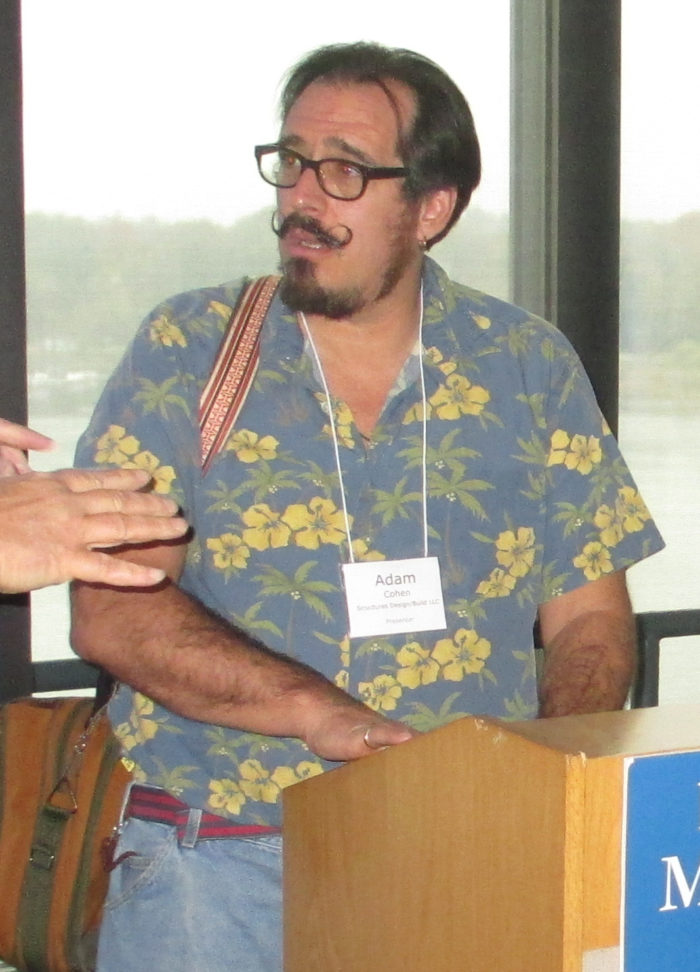
Image Credit: Image #1, #4 and #8: Martin Holladay
A group of about 130 designers, builders, and Passivhaus fans gathered at U Mass Boston on October 27, 2012 to attend a one-day conference organized by Passive House New England.
It’s impossible for this report to be comprehensive, unfortunately, and I won’t be able to do justice to all of the conference events. My report will focus on three speakers: Adam Cohen, Chris Corson, and Roger Normand. Among the presentations not reported on here:
- A presentation by architect Jesse Thompson of Portland, who showed what specification changes would be necessary to nudge several run-of-the-mill energy-efficient projects into Passivhaus territory;
- A presentation by Stephanie Horowitz of Zero Energy Design, who described a residential project in Brookline; and
- A presentation by Laura Briggs that focused on the EmPowerHouse, a Solar Decathlon entry.
Adam Cohen urges clients to aim for Passivhaus
Adam Cohen is a designer at a firm called Structures Design/Build in Roanake, Virginia. In recent years, he has had a surprising degree of success convincing residential and commercial clients to build to the Passivhaus standard.
Cohen opened his presentation with some jokes about his corner of Virginia. “I work in the Bible Belt South,” said Cohen. “Right before I came up to this conference, my Obama yard signs were stolen. Someone suggested that I call this session, ‘Passivhaus in redneck country: Building for people who don’t care about the environment.’”
Cohen then shared an affectionate look back at his countercultural roots. “When I was 25, I was a hippie and an idealist,” he said. He showed us a photo of a house he built with his wife (see Image #2, below). “The house cost $3 a square foot. We lived on a commune. Back then, we were building off-grid houses. We were trying to live off the land. If we…
Weekly Newsletter
Get building science and energy efficiency advice, plus special offers, in your inbox.

This article is only available to GBA Prime Members
Sign up for a free trial and get instant access to this article as well as GBA’s complete library of premium articles and construction details.
Start Free TrialAlready a member? Log in
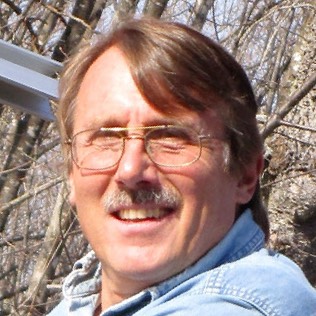




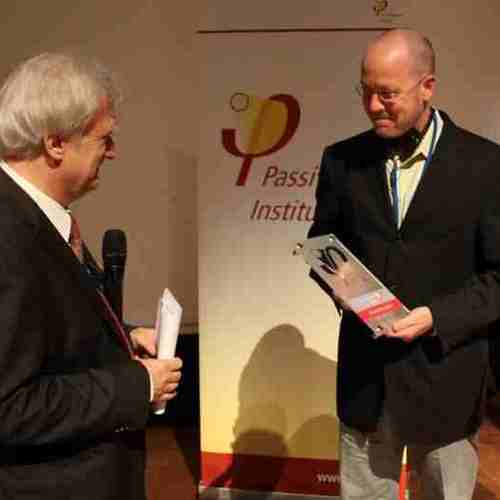
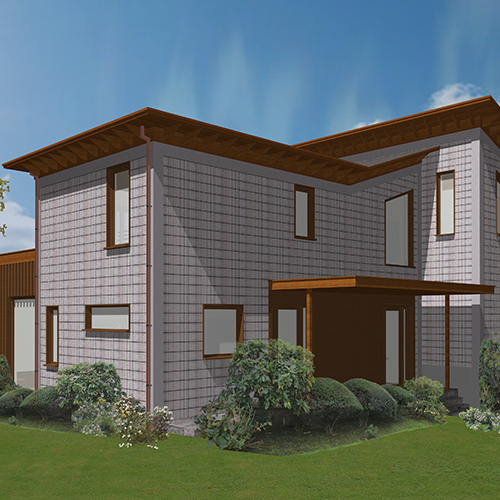

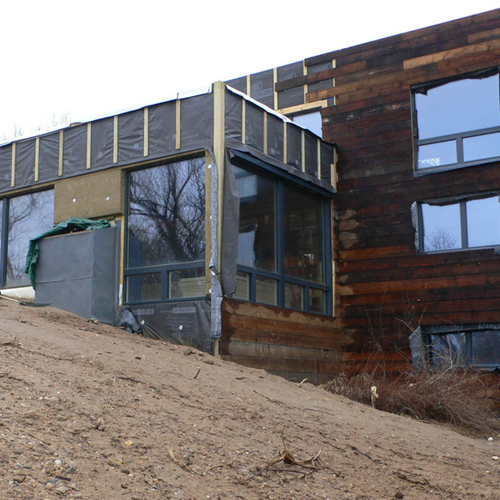






21 Comments
Although there were many
Although there were many extremely valuable notions that I took away from the symposium. There are a couple of 'terms' that I will adopt and incorporate into my vernacular. I would like to especially thank Adam Cohen and Jesse Thompson for both of them respectively.
The 'terms' are.....................
"Meat Sweater" ~ Adam Cohen
"Apocalyptophilia" ~ Jesse Thompson
Thanks Guys!
Appraisals
I'd love to hear some tips on getting appraisers to consider energy savings. I had no success with my PH renovation project here in Kansas. In his opinion, if it doesn't exist in three neighborhood houses (for comparison), it doesn't contribute to his appraisal. What a pain.
Our local credit union was very flexible otherwise, and I'd like to try approaching them directly with some of the energy efficiency details.
Protecting ourselves from apocalyptophilia
Chris,
It's true that the peak-oil crowd is tinged with apocalyptophilia, and it's useful to be aware that there is a human tendency to be excited by (and attracted to) the coming apocalypse -- the one that is always predicted but never quite arrives.
However, for the time being, the word "apocalyptophilia" is mostly used by climate-change deniers to ridicule those who believe that climate change is anthropogenic. (See, for example, this blog.) For that reason, the word has limited utility at the present time, in my opinion.
Response to Jason Miller
Jason,
Stay tuned for more articles from GBA on the topic of green appraisals. Next week, we plan to begin publishing a three-part series of articles by Roger Normand on the topic.
In the meantime, check out these articles on our website:
Green Building Appraisal and Financing Issues
Green Home Appraisal Woes
A Step Toward Fairer Green Home Valuations
When Green Poses an Appraisal Problem
Q&A: Bad Appraisal on a New Green Home
Q&A: Refinance and Appraisal of Net-Zero Home
"Apocalyptophilia" and shades of grey...
I've never liked this term...
Partly because of the reason that Martin mentioned.
And partly because it implies a sort of binary vision of the future (ie: everything's going to be just rosy! or we're doomed!) - when in fact, there are many shades in between.
Besides, one person's apocalypse is just another day in some other person's "hard knock life" - remember all those bankers throwing themselves out of windows during the great depression?
I especially enjoyed Adam Cohen's comments
As a way of illustrating the importance of surface to volume ratio and its relationship to insulation, Adam Cohen declared that he was a perfect "Passive House". Chris Corson cannot use that analogy, his volume is too low.
Great conference, funny, educational, interesting, and inspiring. And it was nice to meet some of you guys.
No laughing!
Martin
Thanks for the etymology lesson! I some how, in the cobwebs of my middle aged mind remember reading that blog somewhere. As far as usefulness of the term goes, cu m se cum sa. I just think it is funny. Thats all , just plain funny. I grew up in a household where we were taught to prepare for the end. Apocalyptophilia hits the nail on the head. Its fascinates me, our humanistic addiction to impending doom. Its a by-product of mortality. Death and taxes.
Irregardless, anthropogenic climate change exists. And even if it isnt man exacerbated (which it clearly is) its still a problem.
Lucy- Too funny. I might be Low volume but I have decent S to V ratio. Small footprint but tall with no extraneous bump outs ...........I'm working on my meat sweater, however . Insulation to come.
I look forward to reading some more about appraisals. That is a problem. Its ironic really because the problem is typically that there are no comps. People that build, retro, or live in, good high performance homes love them and typically stay for a long time, like forever ; if you sink 60 grand into a home you still have a death pledge on. If you build a new Passive House, its warm and comfortable, has very low cost of ownership and is ideally healthy to live in............. why move?............
There are currently 46 certified or pre certified PH projects that have gone through PHIUS and a handful of others certified through PHI.......there are since 2006............ ZERO sales that I know of including the PH's that have been built on spec.
Roger Normand and Edgewater Haus
I am interested in the $220/ sq ft cost for Edgewater Haus: what was included in that estimate? ie is that comprehensive costs including architect, consultant, site work... or cost of the building itself? Thanks!
wrong lessons from surface:volume
I'm troubled. A compact design is most efficient and I am all for it, but PH pushes us toward more square feet as well. Saying that Cohen is a perfect PH because he has a smaller surface/volume ratio ignores the fact that a house/body with less surplus volume would
1) still have all the functionality of the larger unit (or better)
2) have a smaller surface (even though the ratio is worse)
3) use less over-all energy.
4) require fewer natural and financial resources to create and maintain
A rating system that grades a house on functionality would be better, but darned if I can figure out how to do it. Does one look only at energy use per rated occupancy and end up with windowless styrofoam cubicles with fold-down beds? Does one decree certain minimum floor spaces for a mandated list of uses?
Adding a finished nice custom
Adding a finished nice custom non-PH home complete with septic, well, landscaped, driveway, walks, home to raw treed land here, is much more than $220/sqft.
I find often that many many costs are not fully accounted for when discussing home costs.
Response to Dustin Harris
Dustin,
Needless to say, Adam Cohen's joke about his shape was just that -- a joke. It was not an indication that he promotes larger houses that are a little plump in the middle.
However, you make a good point. A small house with a bad surface-to-volume ratio may well use less energy than a big Passivhaus with a good surface-to-volume ratio.
Martin: thanks, but...
I find "bad surface-to-volume ratio" far too easy to misinterpret as a "poorly-designed non-minimized surface-to-volume ratio". I think you meant "The best small house will always have a worse surface-to-volume ratio than the best big PH, but may well use less energy".
Please forgive my obsession with minutia. I love to play with the inherent ambiguities in words, but they are often frustrating when trying to clearly communicate.
my guess
Martin probably meant to say Exactly what he did say.
I think we're losing sight of the real issue here....
How long does it take Adam every morning to get his 'stache looking so cool?
Response to Phil on $220/SF
Phil, that was a budgeted cost, which excluded architect, consultant, certification, land acquisition driveway finish, landscaping. It did include allowances for many items such as stone, electrical, appliances, kitchen. Tempering the cost is that we desired more architectural interest than the typical PH we've seen. We've already had a number of cost increases, and the meter is still running. So we'll see what will be our final SF cost.
Response to Dustin Harris
Dustin,
You're right -- "non-minimized" is much easier to understand than "bad." I guess I wasn't thinking clearly.
small house penalty
It is simply easier to reach Passive house energy level on a per square foot measure - economies of scale. Less energy use is always better, however, so small house design is preferable. Passive house standards are from Europe where most people don't live in single family houses. So perhaps that is more the underlying problem. They weren't really thinking about single family homes when developing the standards.
Response to Robert Swinburne
Robert,
Thanks for you comments. For more discussion of the Passivhaus standard's small house penalty, see:
Are Passivhaus Requirements Logical or Arbitrary?
A Passivhaus Rebuttal: In Defense of the Standard
Appraisals of Passive Houses
Hi Jason. We have had similar issues in Vermont. The good news is that the National Appraisers Institute will be implementing energy based appraiser education by 2015 for new appraisers and continuing education for existing appraisers. The bad news is that it is still 2 years away.
In Vermont we also have problems with the definition of 'standard heating plant'. I have clients that got hit with a 1% increase on their mortgage rate due to the fact they wanted to heat their Passive House with a mini-split.
All issues we hope to see changing over the next few years.
I agree that going to a local credit union that doesn't sell their mortgages but holds them in house is a great option. We are working in Vt with a credit union who is interested in supporting high efficiency buildings through offering mortgages where traditional banks balk.
Good luck with your project and appraisals in Kansas!
Dreaming of the Apocalypse
Chris & Martin,
I won't presume to have invented the term Apocalyptophilia, but I didn't first hear it from Climate Change deniers. I got it from Alex Steffen of Worldchanging fame.
Here is his great essay on the subject called "Night, Hoover Dam": http://www.worldchanging.com/archives//001413.html
"I could do it. It'd be a world for the strong then, for the unhesitating, and that was a sweet strong dram. And before I knew it, I was off on the whole Apocalypse trip: I'd pull together some hardass guys and butch women; we'd grab some remote parcel, and cut the roads nearby with explosives and blocked culverts; I'd learn hunting, and triage medicine, the hotwiring of cars and solar panels; we'd have caches, night vision goggles, camouflage outfits, and mark out fields of fire, strongpoints and perimeters; there'd be a rusty windmill and row after row of canned food on the shelves in our bunker -- it'd be like the Whole Earth Catalog, circa 1974, run backwards through a filter of the Anarchist Cookbook and 2600. It'd be fun, good clean rough living. In time, we'd move back into the cities and hunt deer on the abandoned overpasses, like Chuck Pahalniuk's Space Monkeys. We'd do fine. I knew it."
"But real apocalypses are sordid, banal, insane. If things do come unraveled, they present not a golden opportunity for lone wolves and well-armed geeks, but a reality of babies with diarrhea, of bugs and weird weather and dust everywhere, of never enough to eat, of famine and starving, hollow-eyed people, of drunken soldiers full of boredom and self-hate, of random murder and rape and wars which accomplish nothing, of many fine things lost for no reason and nothing of any value gained. And survivalists, if they actually manage to avoid becoming the prey of larger groups, sitting bitter and cold and hungry and paranoid, watching their supplies run low and wishing they had a clean bed and some friends. Of all the lies we tell ourselves, this is the biggest: that there is any world worth living in that involves the breakdown of society."
Reponse to Jesse Thompson
Jesse,
Thanks for sharing excerpts from Alex Steffen's essay. Good stuff.
Log in or become a member to post a comment.
Sign up Log in